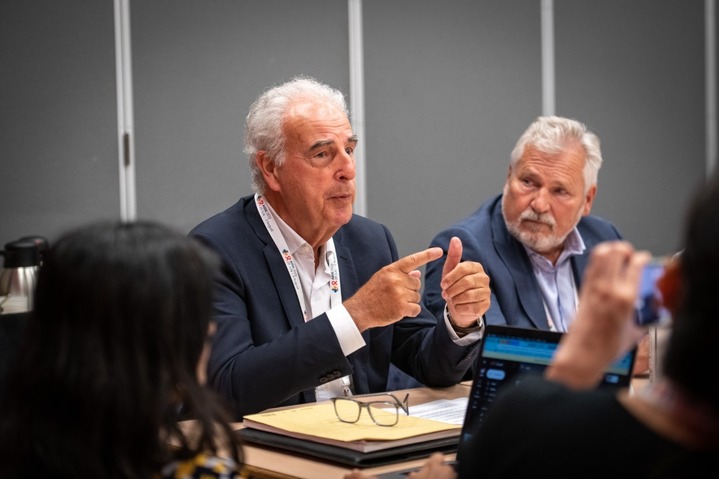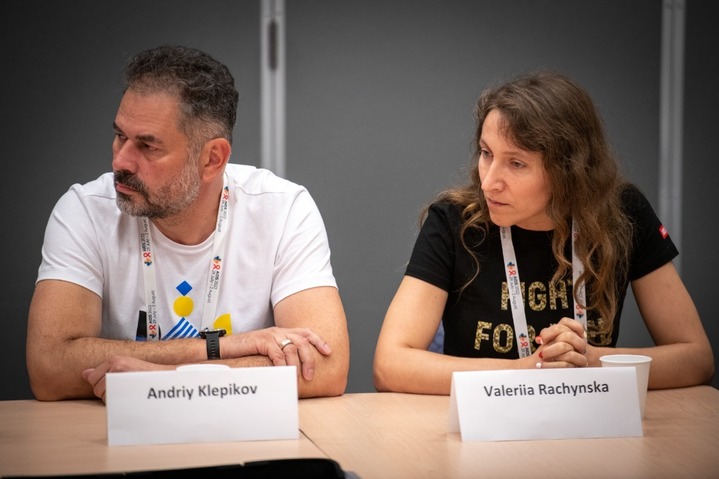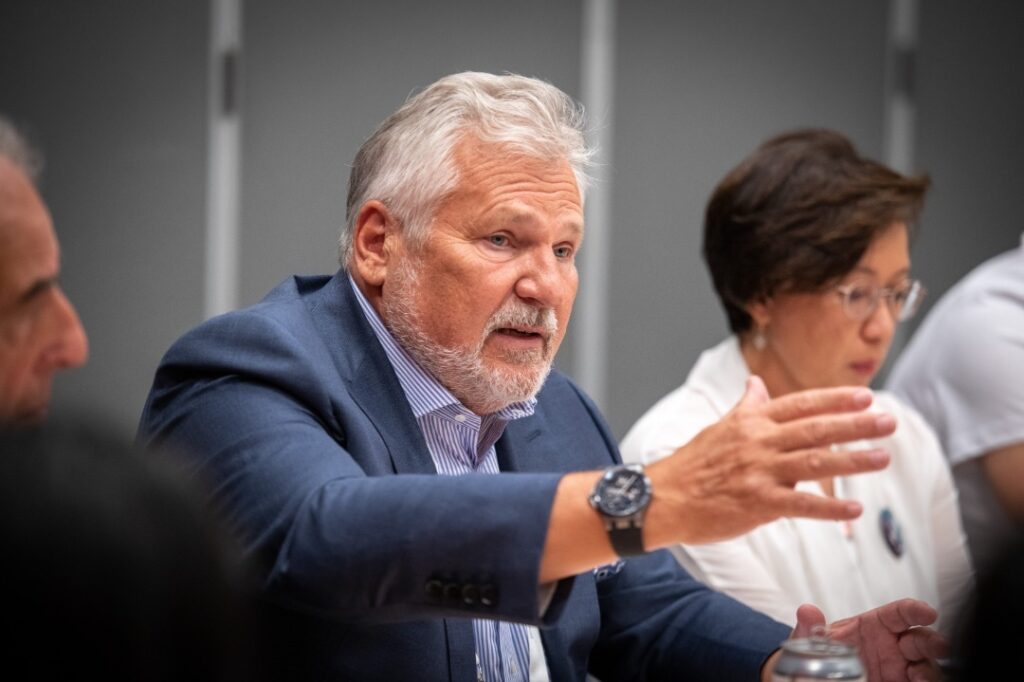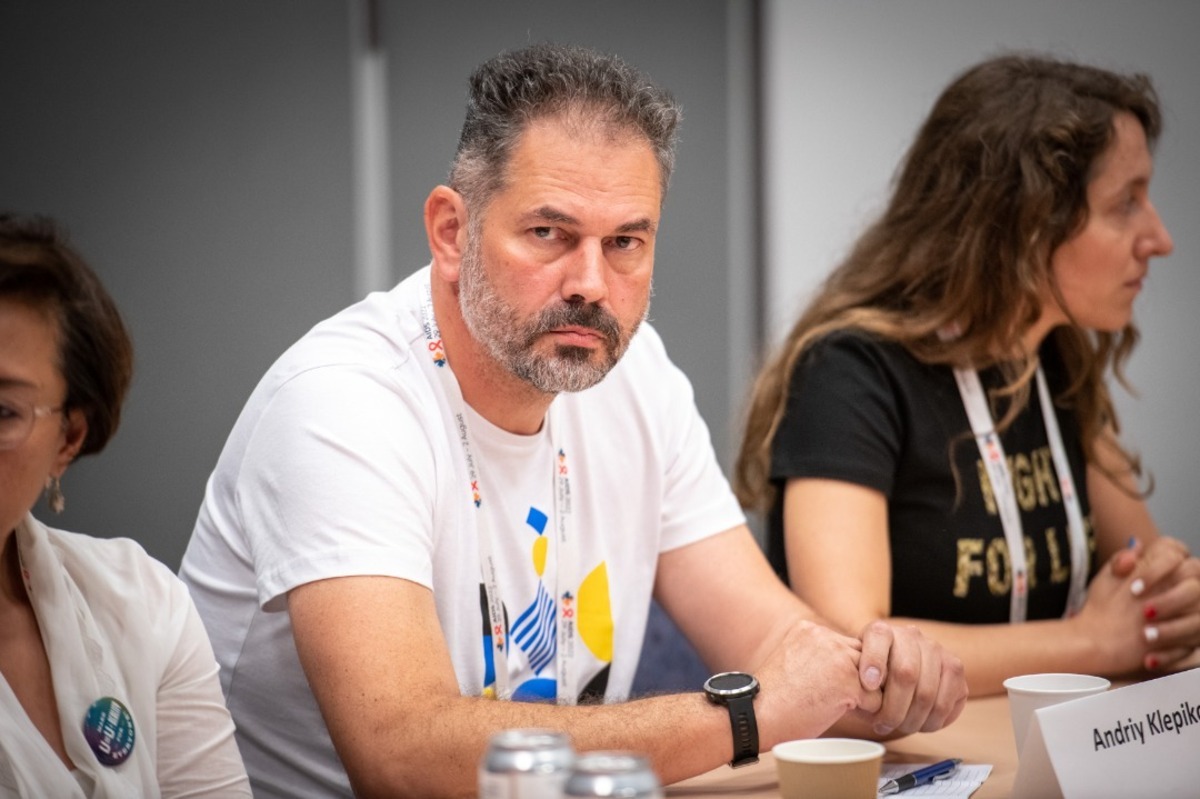MONTREAL, August 9 – Ukraine managed to sustain pre-war HIV/AIDS and tuberculosis rates during its ongoing conflict with Russia due to mobile medical services and outreach, said a Ukraine civil society group.
Andriy Klepikov – executive director of Ukraine’s Alliance for Public Health, a non-governmental organisation that works on HIV/AIDS, tuberculosis (TB), and viral hepatitis – said Ukraine saw no outbreaks in HIV or TB over the past six months of conflict after Russia invaded the country last February 24.
He described civil society and community as the “backbone” of the HIV response in Ukraine during the conflict.
“When clinics were destroyed by rockets and bombing, civil society organisations – through mobile clinics and outreach – still managed to provide continuous services,” Klepikov told a media roundtable on Ukraine at the 24th International AIDS Conference (AIDS 2022) in Montreal, Canada, last July 31.
He said the 20,000 people living with HIV in Ukraine already had established trust and connections to social workers, doctors, and medical facilities, enabling civil society organisations to step into government territory by delivering methadone, for example, to people dependent on opioids.
The overall delivery of HIV medications – provided by the United States President’s Emergency Plan for AIDS Relief (Pepfar) and the Global Fund – was managed by a network of people across Ukraine.
“For example, I can give you an example of delivering TB medications. We needed mobile clinics. When we faced shortage of fuel, there were months with nearly no fuel available, we did it by bicycles,” Klepikov said.
“It’s an example of how we never say no, but we found a way to deliver medications to the patients in our own portable ways. If there are no bicycles, they would walk. Main thing is it achieved results.”
He also pointed out that in Kyiv, the programme for pre-exposure prophylaxis (PrEP) – a HIV prevention medicine – for men who have sex with men increased six times during the conflict.
“This is an indication of how we adjusted the programme for internally displaced people. This requires a lot of effort – to provide six times more medicine, to recruit more social and medical professionals to do this. But we did this. This agility and adjustability of the programme, it’s a big win.”
Klepikov said that HIV testing dropped significantly in Ukraine in March after Russia’s invasion late February, but has now climbed back up to pre-February rates.
He attributed this to establishing connections with patients and increased attention to personal health.
“During the first day of war, people escaped from the war, forgetting their medicines, because of the existential threats. Now, it’s getting back on track. So I think we are actually winning this war, if I may say, in the health area.”
The Alliance for Public Health head, however, called for more attention to TB, noting that groups vulnerable to the infectious disease in Ukraine mostly involve ex-prisoners and refugees.
He also said it was crucial for Ukraine to get access to innovations like long-acting PrEP. Cabotegravir is an injectable, long-acting medicine that needs to be taken only once every two months, as opposed to the daily pills that characterise most PrEP regimes, which significantly reduce a person’s chance of contracting HIV.
Expect Major Public Health Crisis In Eastern Europe

Dr Michel Kazatchkine, special advisor to the World Health Organization (WHO) regional office for Europe, warned that the economic downturn from the Russia-Ukraine conflict is expected to lead to a major public health crisis across the region, particularly in Russia, eastern Europe, and countries in central Asia that are dependent on Russia’s economy.
The region, he noted, already had very fragile health systems and budget constraints even before the war.
“This crisis and the war is a significant threat to gains against HIV in the region,” Dr Kazatchkine told the media roundtable.
He pointed out that eastern Europe and central Asia has long been the only region where the HIV epidemic continues to grow, with a 43 per cent increase in new HIV infections between 2010 and 2020, as well as a 30 per cent increase in AIDS mortality in that period.
The region’s HIV targets have only reached 70-53-50, far from the global 95-95-95 targets of 95, where 95 per cent of people with HIV know their status and 95 per cent of those are on medication and no longer infectious.
According to Dr Kazatchkine, 95 per cent of new HIV infections in the region occur in key populations, where people who inject drugs and their sexual partners account for 45 per cent of new HIV infections. These populations comprise over half of HIV infections in Russia.
“Russia is the main driver of that growth,” he said. “Ukraine has been successful in stabilising the epidemic and containing the epidemic among people who inject drugs.”
“The region is characterised by the fact of legislative related obstacles that prevent people from accessing prevention, harm reduction, PrEP, accessing or self testing, or accessing treatment,” Dr Kazatchkine added.
“The region is home of a quarter of all people worldwide who inject drugs. These people are facing servere repressive policies that lead to stigmatisation, discrimination, and increased risk behavior.”
He expects progress against HIV, TB, and hepatitis to be severely impacted across the region as a result of the conflict, noting that the region has the highest burden for multi-drug resistant tuberculosis that accounts for 99 per cent of such cases in the entire European region.
“War is a huge shock on health and the health system that will persist for a long time. In the next months, we’ll see co-existence of a persistent health emergency and a country engaging in recovery and reconstruction attempts to normalisation.”
The special advisor to WHO Europe also clarified that he and Klepikov were not contradicting each other, saying that his macro estimate was that 75 per cent of health systems are still functional in Ukraine.
“What’s not functional, where people do not get, is everything from the frontline or territories that are currently occupied,” Dr Kazatchkine said.
War-Related Sexual Violence

Valeriia Rachynska, head of the regional policy team at 100% Life, a Ukraine-based patient organisation that works on HIV, hepatitis, and TB, said Ukraine is seeing new vulnerable groups after a wave of war-related sexual violence.
Many people, she said, were reluctant to share such information, due to stigma and discrimination.
“We cannot provide them medical services, social workers, paralegal networks, hotlines. We cannot imagine the reality here because it’s too stigmatised,” Rachynska told the media roundtable.
She also said women living with HIV do not have access to HPV vaccination against cervical cancer. The amount of cervical cancer cases was “very huge” even before the conflict.
“If you’re internally displaced, if you’re a refugee, where is the space for a gynae? You just want to survive.”
Protracted War Will Lead To Increased Drug Use, Psychological Problems

Former Poland president Aleksander Kwasniewski, who served between 1995 and 2005, said a long-term war in Ukraine would lead to higher drug use and psychological problems, noting that around 12 million Ukrainians have been displaced, with five million abroad.
Poland currently has about two million refugees from Ukraine.
“This long term isolation, of course we try to do everything, to include people in normal life, but it’s psychologically very difficult,” Kwasniewsk told the media roundtable.
“The problem of HIV in this region is extremely serious and complicated.”
The former Poland president expected a possible ceasefire in the winter, for Russia troops to renew their resources.
However, he said it was impossible for Ukraine to accept a ceasefire offer to start peace negotiations that, in his opinion, would result in the division of Ukraine.
“No one can say we are ready to resign 40 per cent of the territory,” he said.
“After a short winter ceasefire, we’ll have a new face of the war. For [Russia president Vladimir] Putin, it’s important to go further to Odessa and approach the Black Sea, to have Kharkiv, so the war will continue.”
Kwasniewski described the Russia-Ukraine war as a “conflict between autocracy and democracy.”








